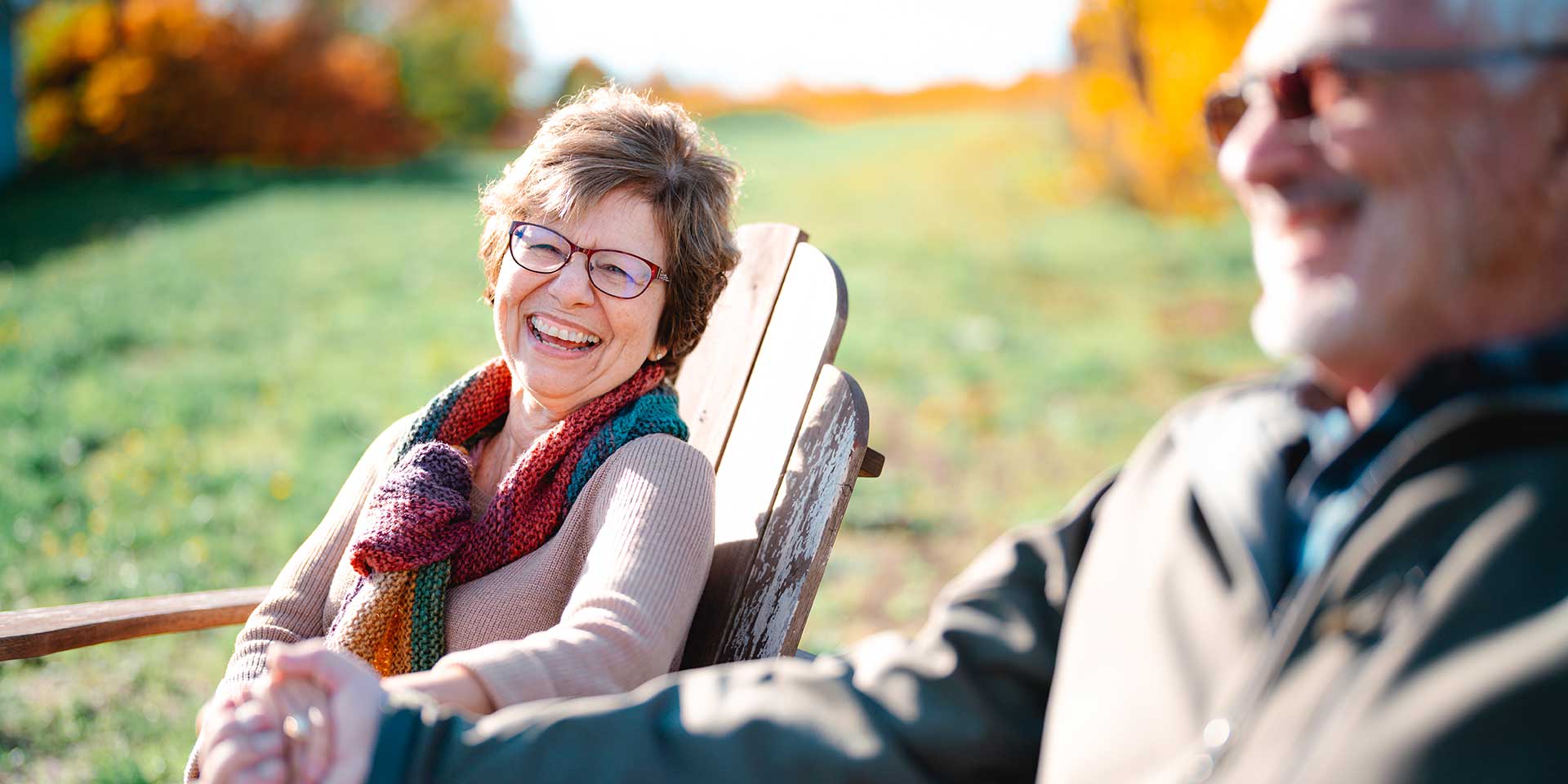Has the stigma of senior living kept you from planning for the future or seeking the care you may need? If so, you’re not alone. Studies and polls show that over 80% of adults aged 50-80 internalize ageism and negative stereotypes about seniors. Sadly, this can lead to health issues and a reluctance to plan for what we like to call the “freedom years.” In this blog, we’ll discuss ageism’s impact on older adults and ways to reframe thoughts on retirement and senior living. But first, some definitions.
Ageism is Condoned
A basic definition of ageism is prejudice or discrimination against people based on their age. The person can be any age, but for now, we will focus on older adults. Alas, there’s more. Ageism is not only common but socially condoned. Many experts say it’s the #1 form of prejudice that is socially accepted and even promoted. We’re surrounded by it, without even realizing it. From the workplace to advertisements to medical care: ageism continues to reinforce harmful stereotypes, especially between older and younger generations.
Need some examples? The “Ok, Boomer” hummus advertisement during the 2020 Superbowl, enflamed the disagreements between Millennials and Boomers. Other media examples include portraying older adults forgetting where they put their clean pants and seniors unable to understand basic financial concepts or needing their grandchildren to explain cell phone usage. Friendsview resident, Martha M. says that clothing stores are the worst with ageism. “Retailers seem to think if a woman is of an age that she only wants longer sleeves and hems. That she’s dumpy or wants to dress like Queen Elizabeth.” According to a 2021 study, “common negative stereotypes about older people include their suffering from poor health and loneliness, physical and cognitive incompetency, unproductivity” and more.
I’m too Young and Active to be in Senior Living
You may have heard someone say, “I’m too young, too active, to move into a retirement home.” This statement reveals a belief in a stereotype that older adults residing in community settings aren’t living vibrant, purpose-fueled lives. Most residents in any senior living community would take offense to this. At Friendsview, there are dozens of interest groups solely led by residents; a resident community website completely built and run by residents; members who serve in local government positions; nationally recognized authors and artists who share their talent; and a plethora of other ways residents are “living their best and most vibrant life.” One resident, Darlene Z., shares, “I’ve never regretted the move to Friendsview. I have been able to build friendships and am so thankful we moved here!”
Ageism Can Cause Health Problems
In the poll mentioned earlier, conducted by the University of Michigan’s Institute for Healthcare Policy and Innovation, AARP, and, Michigan Medicine they discovered that “older adults who experienced more forms of ageism were also more likely to have a chronic health condition such as diabetes or heart disease than those reporting fewer forms.” The Healthcare industry believes this sometimes happens because older adults are embarrassed to seek medical care or are afraid of being judged for their age and struggles. This can lead to health concerns going undiagnosed until they develop into a serious crisis.
Internalizing ageism can also affect a person’s mental health. The same study revealed that people who experience more personal ageism report higher levels of depression and a more negative view of their happiness.
Ageism and the stigma of senior living can be a big bundle of uncomfortable thoughts wrapped in a sense of helplessness. How do we combat this socially condoned prejudice? As with anything good, it starts with each person. Ask yourself if you have inadvertently displayed ageism toward someone else. Have you internalized false ideas about your age? And our favorite way to fight ageism: embrace, embrace, embrace your age (and those of others)! We believe there is beauty and vibrance in every age, every season. Though, we’re especially partial to the “freedom years.”
Limitless Opportunities
Adults nearing retirement age and who choose senior living communities are about to enter their “freedom years.” Or in other words, a season full of:
- Freedom from home maintenance
- Freedom from yard work
- Freedom from the chore of cooking every single meal
- Freedom to focus on what they want to do rather than what they have to do
Staying in your house (which can become an unfunded liability for seniors) can limit your options. Whereas with senior living, the opportunities become limitless. Research has shown that seniors who embrace residing in a community, live longer and are healthier. They have more time for:
- Continuing education and developing multi-generational relationships
- Fitness programs designed by educated professionals
- Spiritual growth and companionship
- Pursuing dreams and passions that were put on hold while raising families and building careers
Don’t let the stigma of senior living or ageism keep you from embracing this season in your life or hinder your planning for the future. At Friendsview, we love helping people decide on a plan for their freedom years—even if it doesn’t include our community. Contact us today to talk more about a plan for embracing your freedom!









